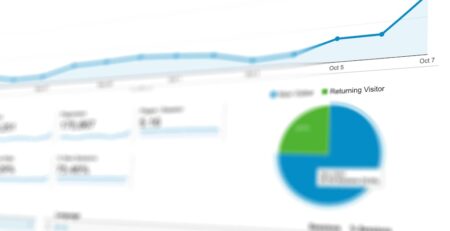- Active Backlink
- Blog
- You’ll Never Believe How These SEO Keyword Search Tips Doubled Website Traffic!
You’ll Never Believe How These SEO Keyword Search Tips Doubled Website Traffic!

Search Engine Optimization (SEO) is a key component of any successful digital marketing strategy. By optimizing your website for search engines, you can improve your visibility online, attract more organic traffic, and ultimately drive more leads and sales. One of the most important aspects of SEO is keyword research. By targeting the right keywords, you can increase your website’s ranking in search engine results pages (SERPs) and attract more relevant traffic to your site.
Tip 1: Use Long-Tail Keywords
Long-tail keywords are phrases that are more specific and longer in length than traditional keywords. While they may have lower search volume, they are often less competitive and can help you target a more specific audience. By using long-tail keywords in your content, you can attract highly-targeted traffic and improve your chances of ranking higher in search engine results.
Tip 2: Conduct Competitor Analysis
One of the best ways to identify relevant keywords for your website is by conducting competitor analysis. By analyzing the keywords that your competitors are targeting, you can get insights into what is working for them and identify opportunities to target similar keywords in your own content. This can help you stay ahead of the competition and attract more organic traffic to your website.
Tip 3: Use Keyword Research Tools
There are many keyword research tools available that can help you identify the best keywords for your website. These tools can provide valuable insights into keyword search volume, competition, and difficulty, helping you make informed decisions about which keywords to target. Some popular keyword research tools include Google Keyword Planner, SEMrush, and Ahrefs.
Tip 4: Focus on User Intent
When selecting keywords for your website, it’s important to consider user intent. User intent refers to the reason behind a user’s online search. By targeting keywords that align with the intent of your target audience, you can attract more relevant traffic to your site and improve your chances of converting visitors into customers. Consider the different types of user intent, such as informational, navigational, and transactional, when selecting keywords for your content.
Tip 5: Monitor and Optimize Your Keywords
Once you have selected your target keywords, it’s important to monitor their performance regularly and make adjustments as needed. By tracking the performance of your keywords, you can identify trends, make informed decisions about which keywords to focus on, and optimize your content to improve your search engine ranking. Be sure to regularly review your keyword strategy and make adjustments based on the results you see.
Conclusion
By following these SEO keyword search tips, you can double your website traffic and attract more qualified leads to your site. Remember to use long-tail keywords, conduct competitor analysis, use keyword research tools, focus on user intent, and monitor and optimize your keywords to maximize your SEO efforts. With the right keyword strategy in place, you can improve your search engine ranking, attract more organic traffic, and ultimately drive more business success.
FAQs
1. How important are keywords for SEO?
Keywords are essential for SEO as they help search engines understand the content of your website and match it with relevant search queries. By targeting the right keywords, you can improve your website’s visibility online and attract more organic traffic.
2. What are long-tail keywords?
Long-tail keywords are specific and longer phrases that are less competitive than traditional keywords. While they may have lower search volume, they can help you target a more specific audience and attract highly-targeted traffic to your site.
3. How can keyword research tools help with SEO?
Keyword research tools provide valuable insights into keyword search volume, competition, and difficulty, helping you identify the best keywords for your website. By using these tools, you can make informed decisions about which keywords to target and optimize your content for better search engine ranking.








